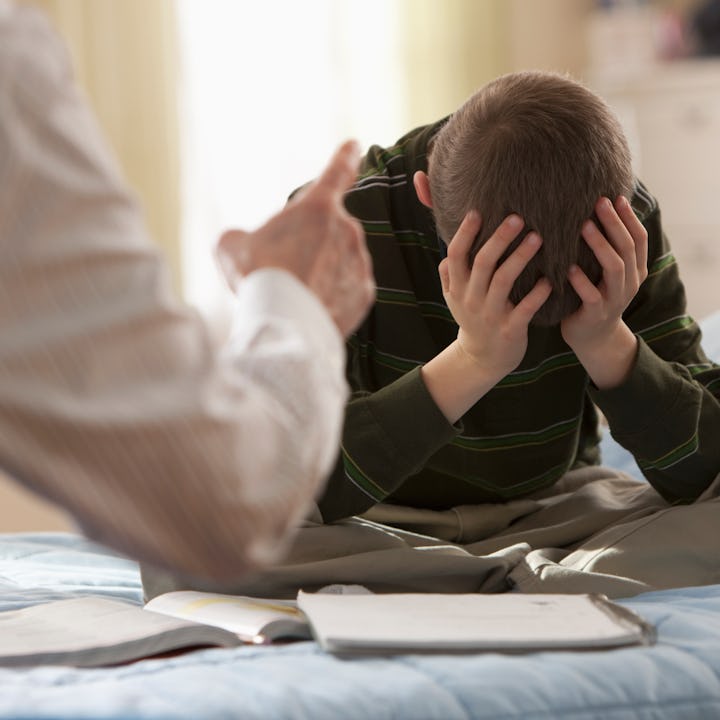Your Parenting Style Might Determine Your Child's Political Leanings
A new study from Carnegie Mellon University looked at the link between disciplinarian and nurturing parenting styles and kid’s later views.

How many parenting styles are there now, a million? Between helicopter parenting, free-range parenting, permissive parenting, and everything in between, it seems like everyone has an opinion on which parenting style ultimately helps children grow up happy and healthy. And a new study from Carnegie Mellon University suggests that parenting styles don’t just shape your kid’s attachment style and overall mental health, but also their future political leanings.
The research team found that the two “main” parenting philosophies — helicopter (or disciplinarian) parenting and free-range explorer parenting (or nurturing) — can lead to very different political ideologies. Ultimately, kids who grow up with stricter or over-involved parents tend to have more conservative beliefs, whereas children whose parents are more open to exploration tend to grow up to have more liberal ideals.
“There’s a new dimension of parenting philosophy that has emerged [in recent decades] — free-range vs. helicopter parenting,” Danny Oppenheimer, professor of social and decision sciences in the Dietrich College of Humanities and Social Sciences, said in a press release. “If the [helicopter parenting] trend continues, we can expect people to endorse greater intervention in personal liberty in most social institutions.”
Oppenheimer examined a ‘government as family’ theory, hypothesizing that “a person’s belief on how government should function is strongly correlated to their personal belief on how families should function.”
The researchers first asked 99 participants — nearly half who are parents, with the other half presumably child-free — 19 questions to figure out what exactly influences a person’s acceptance of paternalistic governing, or the “interference of a state or an individual with another person, against their will, and defended or motivated by a claim that the person interfered with will be better off or protected from harm.” And it turns out that parenting style preferences was the strongest predictor of whether or not a person would align with this more conservative stance.
“I was surprised how these results cut across political parties,” said Christian Lindke, a PhD candidate at the Center for Social Innovation at the University of California, Riverside and first author on the study. “Each party crosses the paternalism line depending on the issue being asked.”
The researchers then examined 150 participants’ reactions to newspaper headlines, changing the angle of the article (pro, con, and neutral) and tracking participants’ responses. Finally, the team looked at an additional 1,650 participants (60% of who are parents), and it confirmed their findings: people who prefer disciplinarian parenting also prefer paternalism, and this perspective bleeds into their opinions on everything from medicine to education to elderly care.
“By knowing people's preferences for helicopter parenting, we can predict people's views on autonomy vs. coercion in business, religion, sports, peer-relationships, medicine, politics,” said Oppenheimer. “We can even predict how middle-aged people will treat our aging parents in regards to autonomy, which has implications for geriatric health.”
Previous studies have also suggested that helicopter parenting can be detrimental to children. Being overly involved in a child’s life can lead to a loss of autonomy, engagement in school and other activities, and overall happiness with life. It can even have a negative impact on the parent themselves. Still, many parents lean towards this style.
“I don't want to become alarmist, because we really don't know whether the effects on children would be the same as the effects on citizens,” said Oppenheimer. “But if being helicoptered has similar effects on adults as kids, we would expect to see heightened mental health problems and lower self-efficacy across society at large.”